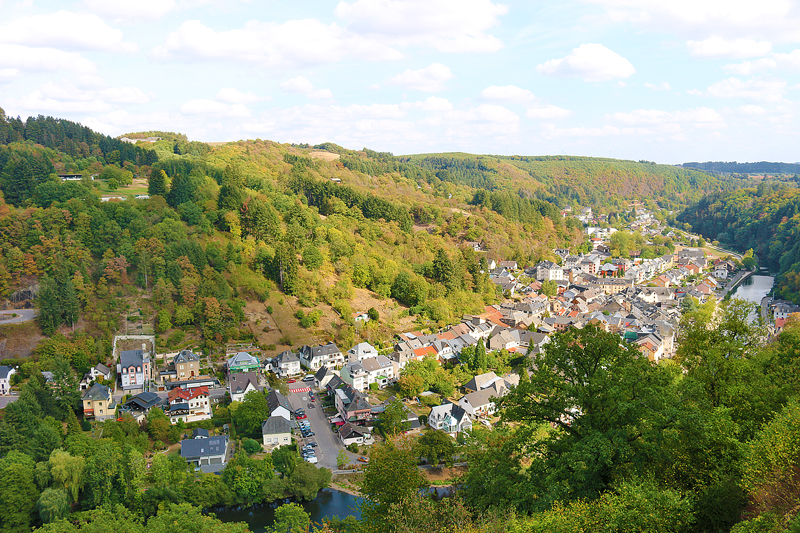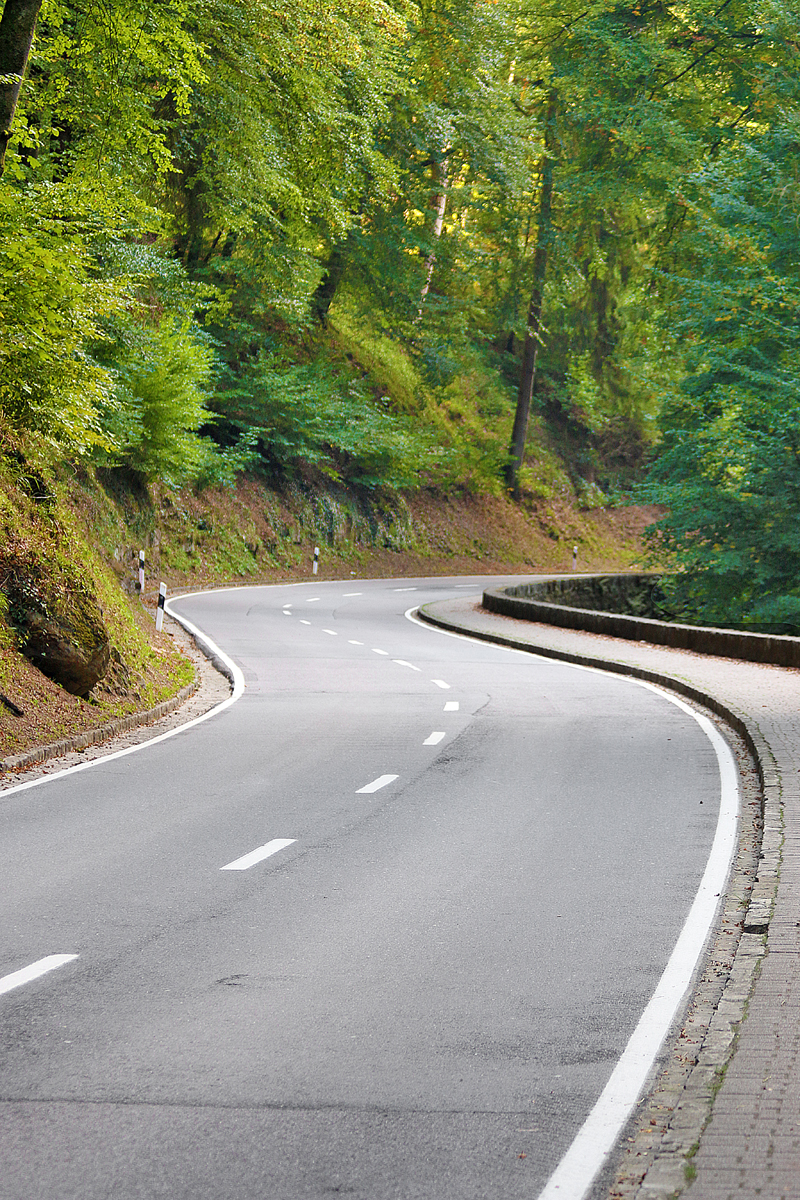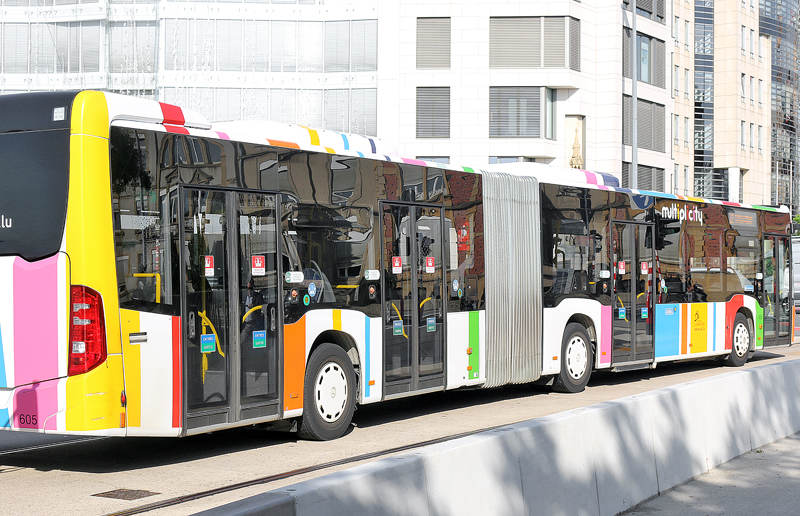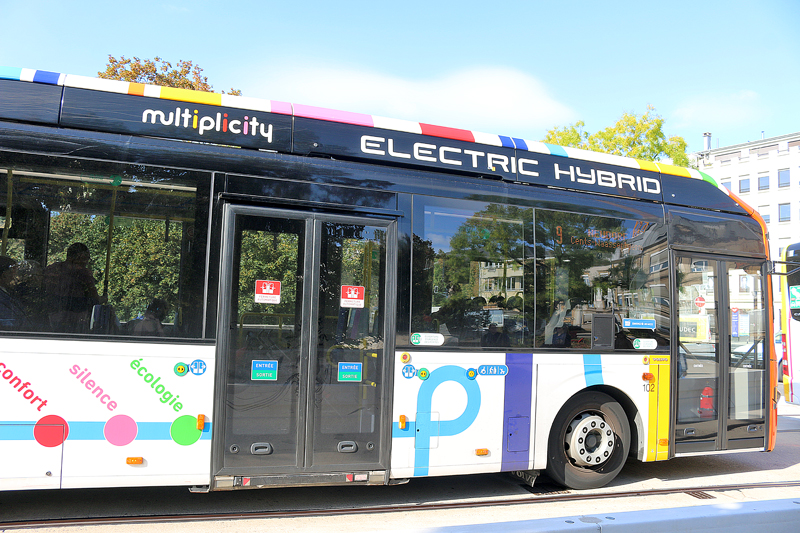Luxembourg took the leap during this leap year to become the first country in Europe to offer all modes of public transportation for everyone completely free of charge — including both residents and visitors, who can now travel throughout the Grand Duchy without paying a single cent — effective as of Saturday, February 29, 2020.
Free Public Transportation For All Now In Effect in Luxembourg

Formerly, passengers were able to travel up to two hours using the public transportation systems in Luxembourg for two euros. If a passenger was younger than 20 years of age, he or she was able to use the public transportation system free of charge, which became effective during the summer of 2018.
Xavier Bettel — who is the current prime minister of the Grand Duchy of Luxembourg and whose top priority is protecting the environment — declared that free public transportation will be introduced to the small country during the first quarter of 2020, as was first reported in this article here at The Gate back on Sunday, April 21, 2019 — simultaneously with a reform of fixed tax-deductible travel expenses. Revenue will no longer be wasted between the operators of public transportation. The reform of travel expenses will — among other things — take into account the specific needs of people who work outside of the hours of service.
According to this press release which was posted at the official Internet web site of the Grand Duchy of Luxembourg, “This decision is part of an ambitious programme, and will cost 40 million euros. That’s the amount of money generated annually by tickets and season tickets, which represents no more than 8% of the cost of running public transport. This means that the cost of the measure, offset by taxation, has been deemed acceptable, since according to the financial equation the measure is above all a social one. Additionally, the ecological aspect of the measure could have a positive impact on the environment by attracting new users to public transport while minimising carbon emissions thanks to fewer cars on the road.”
Almost 185,000 people commuted every day from other countries to work in Luxembourg in 2017 — with approximately 58 percent of them to its capital city, which is also known as Luxembourg — resulting in the country to be amongst the worst in Europe in terms of both traffic congestion and overcrowded trains. Higher salaries — almost 40 percent greater than what is offered for similar jobs in France — is one of the reasons as to why Luxembourg is a popular country in which to work and an attractive option for residents of France, Belgium and Germany.
The removal of a current tax break for commuters — which is based on the distance traveled and not the mode of transportation — is expected to fund some of the cost of the initiative of offering free public transportation to all. Another source of funding is the savings of the money which is spent on selling and controlling tickets to the public transportation system while simultaneously policing its commuters: in 2018, Luxembourg budgeted almost €900 million in public money for its transportation system; but it recovered approximately €30 million in ticket sales.
The population of the Grand Duchy of Luxembourg in 2019 is estimated at 613,000 people.
Is Free Public Transportation Truly Beneficial?

“This, surely, is just the kind of radical action the world needs if we are ever to escape the tyranny of the motor vehicle and make our cities green, pleasant and quieter” is what Susanna Rustin wrote in this article for The Guardian about the initiative of free public transportation for all to be implemented by Luxembourg. “Just imagine being able to hop on and off buses, trams or trains at will, without scrabbling around for coins or tickets. Picture the reduction of traffic that would surely result from shifting the incentives so dramatically: the buses whizzing down uncongested streets, the less stinky air and less stress-inducing crossings, without the queues of cars pressing to squeeze through before the light turns red, their impatient drivers huffing and honking and swearing.”
Although Rustin wrote that with “around a quarter of European emissions due to transport, 70% of which are from road traffic, it is tempting to jump up down and demand that Europe’s bigger capital cities should follow suit”, this report from October of 2002 by the National Center for Transportation Research at the University of South Florida countered that larger transportation systems which cannot afford to operate at a loss had experienced negative consequences — which included an increase in vandalism, revenue shortfalls, and slower service overall. Increased crowds were an issue as well — after all, why walk, ride a bicycle or use a skateboard when the public transportation system costs nothing on which to ride?
Now that Luxembourg became the first country in Europe to eliminate charging passengers fares on all modes of public transportation — which includes buses, trams and trains — the definitive answer to this question of whether free public transportation for all is truly beneficial will eventually be possible.
Summary

Free public transportation is already offered in some cities around the world at certain times — as well as to people such as retirees or the unemployed, as two of many examples — while other locations are considering following the lead of Luxembourg and offering free mass transportation to all.
I was in Luxembourg in September of 2018, as I rented a car to drive there from Amsterdam. Although I did experience some congestion, it was not as bad as I thought — probably because I attempted to avoid rush hour whenever possible. However, I found the capital city itself to be quite walkable, as I parked the car at the hotel property at which I stayed and walked into and around the city for the day. I intend to write articles pertaining to my experience in Luxembourg.
If public transportation was free of charge, I would likely still opt to walk, as it is the most environmental way of getting around; it is great exercise for me; and I get to see and experience things one does not normally see with other modes of transportation — unless, of course, I had little time; the distances were significant; or the areas in which I were to walk were too dangerous.
As to whether other cities and countries should follow the lead of Luxembourg, I would initially support free public transportation; but I would have to carefully review the potential disadvantages — some of which have already been mentioned — to arrive at a final opinion as to whether or not that is truly a good idea.
In the meantime, know that you will be saving money on transportation costs if you decide to visit Luxembourg, which I recommend doing if you have the opportunity. I intend to offer my explanation as to the reasons why in future articles here at The Gate pertaining to my experiences in the Grand Duchy.
All photographs ©2018 by Brian Cohen.
